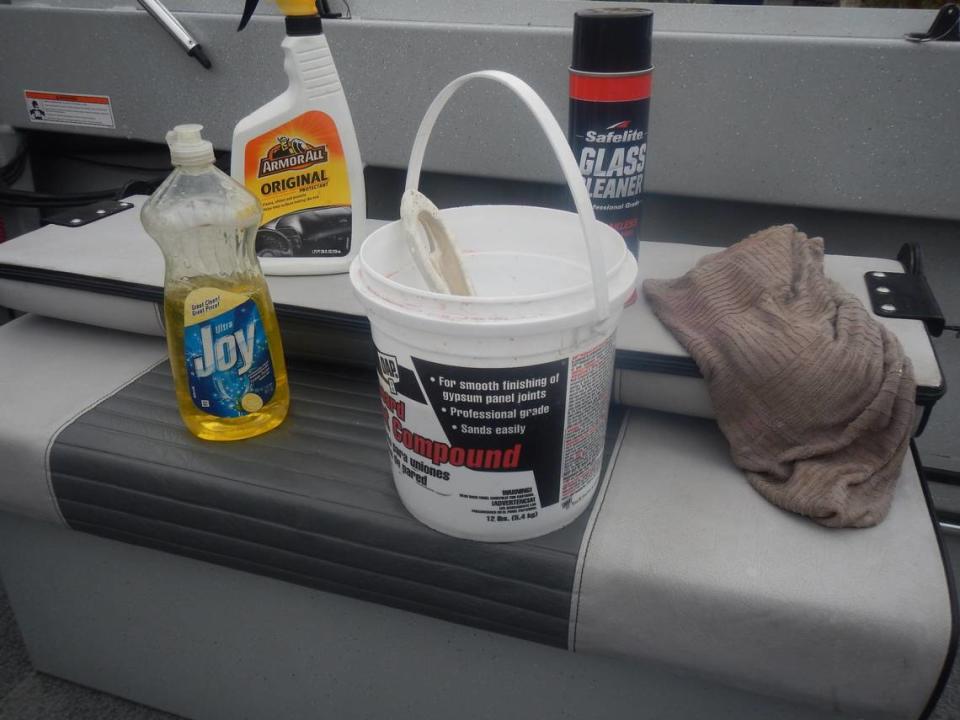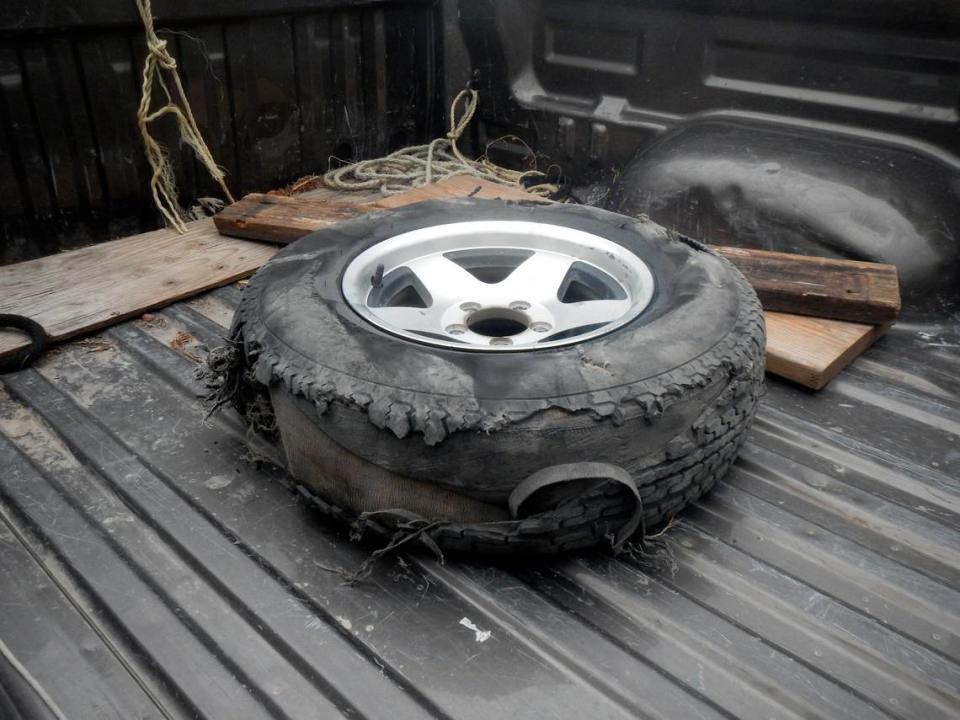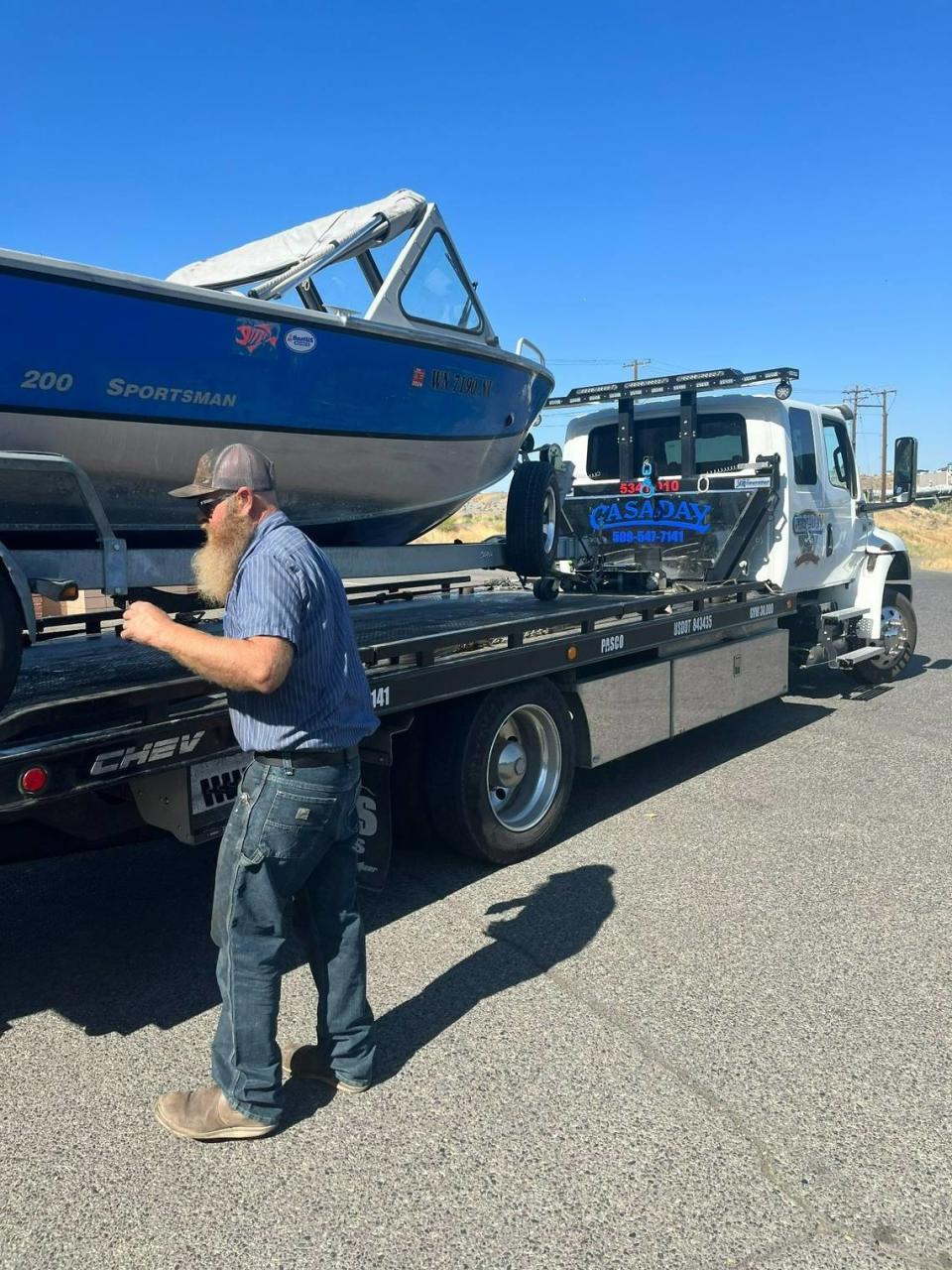Outdoors | An early season WA boater’s checklist of essentials
I enter a locked storage yard used by people like me who don’t have the garage space to store their boats at home. The 8-year-old custom-made cover to my 22-foot Hewescraft flaps where a seam parted after a week of gale force winds.
Boat and trailer have been hibernating since the first week in November. Sub-freezing weather, snow, rain, wind, and family holiday gatherings disrupted my busy retiree calendar.
More telling, however, was my wife’s broken foot. With her outfitted in a pediatric walking boot, fishing went on the back burner.
Today’s weather report is favorable for a day on the water: light wind, mixed cloud cover, and temperature in the 40’s. More important is the fact that Nancy laced up a pair of sturdy walking shoes for the first time in three months. I am finally free of the ties that bound me.
I remove the drain plug to the boat and flood the gravel parking lot. Purple roe stains mottle the gunnels. The steering wheel and throttle handle appear as if varnished with mold.
Splatters of dried fish blood color the floorboards.
Apparently, I did not scrub the boat down with Lemon Fresh Joy before things went sideways with familial responsibility and inclement weather. It isn’t all bad karma, though. The big motor turns over with the first click, the depth finder works, and the trailer tires are not flat.

Trailer lights work after being replaced with sealed-beam LEDs two years ago.
I load gear bags, two ultra-light spinning rods, and head to Cargill Pond for a test run that involves fishing for yellow perch. Halfway down the divided highway I realize I had forgotten to pump up the pressure in the boat trailer tires to a prescribed 50 psi or check the wheel bearings.

Arriving at the launch, the boat gas gauge reads barely above empty, but no worries. I don’t plan to motor more than 100 yards. My buddy, Ken, and I drop anchor outside the range of bank anglers farthest cast and put two dozen fat yellow perch in the cooler. We don’t break a rod or grind the prop on a submerged boulder.
One week later, I elevate my game. When I hook up the bow mount motor, the charge shows only two bars, which is as high as it gets for a battery with a purchase date of 2017. I tank up with gas to alleviate concern I might have to row my way home and make a mental note to purchase a new deep-cycle battery.
An empty parking lot at the Snyder Street launch informs I am on my own if something goes wrong. Heading upriver to a favorite walleye hole, a light rain falls to reveal shredded windshield wiper blades.
Targets show up on my sonar, but I have no way to find out if they are suckers, whitefish, or walleye because I forgot my underwater camera. Twenty pulls with the choke full-on make my kicker motor purr, but reverse gear rattles. I make a mental note to check the linkage when I return home.
Angry skies gather over snow-shrouded Rattlesnake Mountain when I email friends to ask if they made a “to do list” before they took their boat out.

“I used to, but now it’s in my head,” the first one replied. “My list comes from 35 years of making mistakes.” First on his annual preparedness plan was a shakedown trip to make sure everything worked before he went on a real trip.
Another boater said, “I mostly rely on a mental checklist before I leave the house.” In between trips, he makes sure his trailer bearings and steering mechanism are greased, gear lube in lower units is swapped out, and the oil in his motors is changed regularly.
A third guy reinforced the need to check all batteries for voltage and state, and to add fuel conditioner if his boat sits for a long period of time. “Most important is to have your fishing license and all your gear: bait, ice, cooler, lunch, cell phone,” he said.
To their well-informed checklist, I would add the following necessary items: anchor, life jackets, fire extinguisher, oar, boat registration, foul weather gear, hat, sunglasses, flashlight, underwater camera, and drinking water.
My guess is more items will be added over time. Meanwhile, I remain secure in the knowledge that future screwups will be minimized unless I attempt to keep all necessary details in my head.
Dennis Dauble is author of five award-winning books about fish and fishing. Contact him via his website at DennisDaubleBooks.com.


